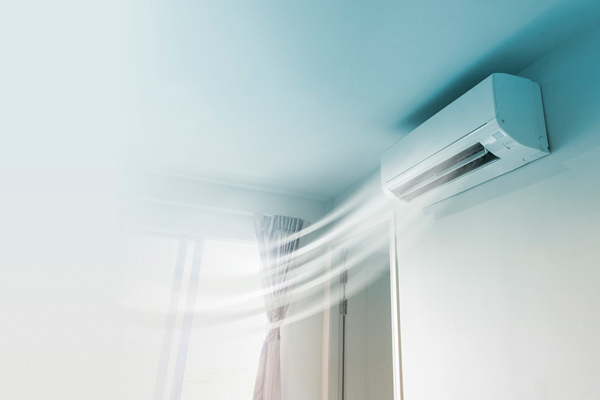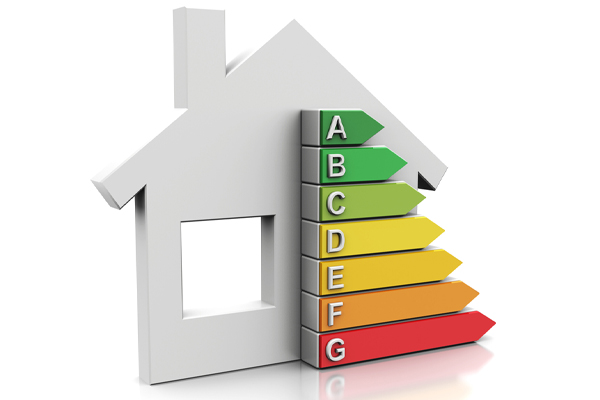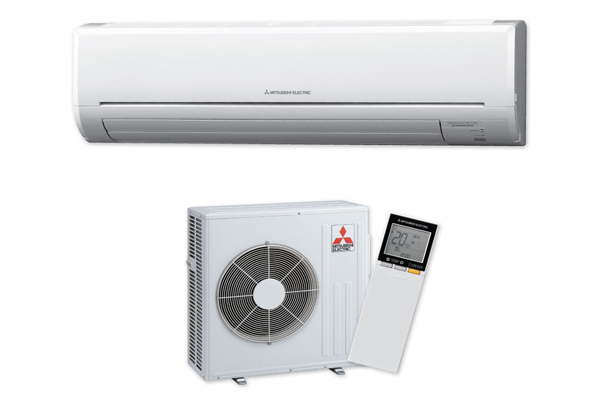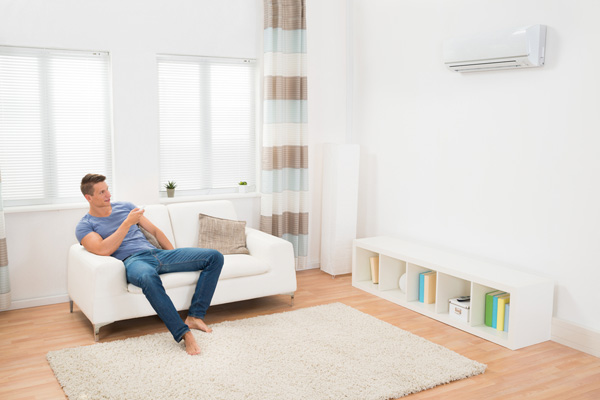The Differences Between Ductless Heat Pumps And Ductless Air Conditioners

Ductless mini-split systems are becoming a popular option for many homeowners who are looking for an efficient and effective heating and air conditioning system for their home. Mini-splits offer several benefits that traditional HVAC systems cannot provide. Easily the most distinct feature of mini-splits is the absence of ductwork. Instead, mini-splits use indoor and outdoor air unit handlers connected through refrigerant lines.
There are two major types of ductless HVAC systems – ductless heat pumps and ductless air conditioners. Let’s take a look at these components and examine their benefits and disadvantages.
Why Use A Ductless HVAC System?
Contents
Ductless HVAC systems offer many benefits, such as:
Ductless HVAC Systems Are Easier To Install
Ductless HVAC systems do not require a complicated process to install. Whereas traditional HVAC systems require a few days or more to complete. Ductless systems typically require a small hole, about three inches in diameter, to connect the conduit between the outdoor and indoor units. The refrigerant is already fitted into the system. As a result, this procedure is eliminated, saving installers more time. With a ductless system, professionals need only a few hours to complete the installation for most setups. Of course, this will depend on how many indoor air handlers are required. In general, ductless HVAC systems can be installed within a day, so you are assured that your schedule and everyday activities will largely stay intact.
HSPF & SEER Ratings Of Ductless Systems
Ductless systems boast a good SEER (Seasonal Energy Efficiency Ratio) and HSPF (Heating Seasonal Performance Factor) rating. In fact, most models have better SEER and HSPF ratings than central HVAC systems. Ductless systems enjoy better technology not often applied to traditional systems. They typically carry inverter technology that allows the units to run at low speeds without sacrificing comfort for your home.
Traditional HVAC systems frequently turn on and off – a process that consumes plenty of energy. When an HVAC system starts up, it requires a burst of energy. An inverter-driven system, however, runs continuously until the preferred temperature is reached. When this happens, it will only require a small amount of energy to continue running while still providing consistent temperature and keeping your home quite comfortable.

Home Heating & Cooling System That Offers Zoned-Comfort
Another key benefit of a ductless system is that it allows the creation of zones. These are areas for which you can set different temperatures. Each zone has an independent thermostat and an indoor air handler. With zones, certain areas of your home can maintain a different temperature from others. For example, you could set a lower temperature in the living room and a higher temperature in the bedrooms. With just one outdoor unit, you could set multiple zones in your home using as many as eight units indoors.
Safety Of Ductless HVAC Systems
When it comes to safety, mini-splits are difficult to beat. Their heating process does not require combustible fuel, eliminating the risk of gas leaks or carbon monoxide buildup that could present a number of problems for your household.
Ductless heat pumps also offer a safer means to keep warm compared to ventless or garage heaters. A ventless heater has an oxygen sensor the turns the unit off when the levels of oxygen fall too low. The heater will continue to work even if the sensor malfunctions. Should this happen, there is a possibility that harmful gases could leak. With ductless systems, however, this is not an issue at all.
Comparing A Ductless Heat Pump And A Ductless Air Conditioner
A ductless heat pump offers two benefits: heating and cooling. A ductless air conditioner, on the other hand, can only provide cooling for your home. If you live in an area that experiences cold weather, you will have to purchase a separate heating unit.
Understanding How Heat Pumps Work
The heat pump cools the home in the same manner that an air conditioner does. It utilizes a liquid refrigerant that cools warm air. This refrigerant passes through an expansion valve during the cooling cycle. After, the refrigerant evaporates and turns into a gas. It then flows via the evaporator coil found in the indoor unit.
Warm air is pulled into the unit, passing through the evaporator coil. The coil then releases heat that was absorbed by the refrigerant and the refrigerant evaporates as gas. The warm coolant is then passed through the outdoor compressor and the heat is released outdoors. This causes the temperature inside your home to go down.
A heat pump is also designed to reverse the direction of the refrigerant flow. It is capable of absorbing heat outdoors then bringing the air indoors to keep your home warm. For the heating process, liquid refrigerant passes to the outdoor unit evaporator coil from the expansion valve. The coolant evaporates as hot gas before it returns to the indoor unit.
The indoor unit forces the heat from the refrigerant. The air inside the indoor coil carries the heated air into your home. The refrigerant reverts to a high-pressured liquid that can be used to repeat the heating cycle.

Should You Choose A Ductless Heat Pump?
Ductless heat pumps are the better solution if you need to add heating and cool to your home. It is efficient and cost-effective, offering an excellent alternative to the more traditional central air systems.
If you want a piece of single equipment that cools and heats your home, then a ductless heat pump is a perfect choice. With a ductless heat pump, you enjoy cool air in summer and warm air during winter. You do not have to change systems or switch from one separate system to the other when seasons change.
The challenge with a heat pump is that it works well in many areas but may not provide enough heat at very low temperatures. If the temperature where you live is too low, the unit may fail to bring in sufficient heat from outdoors to keep your home warm.
Some models can provide good heat in low temperatures of up to -15 degrees Fahrenheit. The refrigerant in the heat pump will absorb available heat from outdoors to expand. Keep in mind, however, that some models will not be able to expand in very low temperatures.
When choosing a heat pump, always clarify the heating capabilities of the unit you are eyeing to buy. Although ductless heat pumps are quite versatile, they have their limitations. Remember that most heat pump units cannot draw in warm air effectively when outdoor temperatures drop to -5 degrees Fahrenheit. To get the heat you need, you may need an alternative heat source such as a furnace or boiler.

When Are Ductless Heat Pumps Used?
Although it has some limitations in extremely low temperatures, ductless pumps remain popular among homeowners. Is it the right choice for your home? Here are some situations where ductless heat pumps are best applied:
Outbuildings Or Additions: Ductless mini-splits are the best options to extend heating and cooling for structures such as sheds, garages, and newly-built add-on structures. Typically, homeowners either do not have existing ductwork or do not want to install new ductwork for additions and outbuildings. Ductless options eliminate the additional cost and labor.
Older Homes And Buildings: Many older structures do not have central air conditioning. As such, they do not have existing ductwork. If additional ductwork is not an option, ductless heat pumps are the best alternative.
Large Homes: A large home often has multiple rooms, some of which may not always be occupied. A mini-split can create zones and allow you to switch off the indoor units on unoccupied spaces, thereby saving on the cost of energy.
Ductless mini-splits are also excellent for homes that are running on a low-efficiency heating system. If your home has an older or damaged HVAC system or is frequently grappling with high fuel cost, consider a ductless mini-split system. It is also the best option for areas in the home that are exposed to extreme temperatures, such as sunrooms, basements, or rooms above garages.
When Is A Ductless Air Conditioner A Good Choice?
If your home needs an additional cooling unit to supplement your existing air conditioning system, you do not require a heat pump. A better option would be adding a ductless air conditioning system.
This system is designed specifically to provide cool air to certain zones in the home. If your area enjoys an arid and tropical climate where temperatures are 60 degrees Fahrenheit and above, you may need an air conditioning unit. It is also a good choice for cooling individual enclosed areas such as sunrooms and bedrooms.
Check Out One Of Our Ductless Installation Projects
Ductless Panels Add Heat And AC In An Addition To A Catasauqua PA Home
Conclusion
Ductless heat pumps offer a year-round functionality that provides safe and efficient heating and cooling for your home. If you need both applications, then a ductless heat pump is a better investment over a ductless air conditioner. Keep in mind, however, that each home is unique and might need supplemental cooling, along with humidity control for which a ductless A/C is a good choice.
If you want assistance to identify which system will match your requirements, ask a qualified HVAC technician for advice. An experienced professional can help you choose a ductless system that can run at maximum capacity if you need it to. They have the experience and knowledge to ensure that the system is installed in the best location that will allow you to receive optimum zoned comfort. Call your licensed heating and cooling contractor for advice today.
Call R.F. Ohl To Learn More About Ductless HVAC Systems
If you want to discover what a ductless HVAC system can do for you, call R.F. Ohl. Our NATE-certified technicians will help you determine the type of HVAC system that works best for your needs.
R.F. Ohl is one of the region’s leading full-service HVAC companies. We offer a wide range of HVAC services, from installations and tune-ups to repairs and consultations. We can help you find different approaches and solutions to ensure that our services meet your requirements and budget. Call us today for a free, in-home estimate.
Click here to contact us today or give us a call at (610) 377-1098 if you have any questions.
